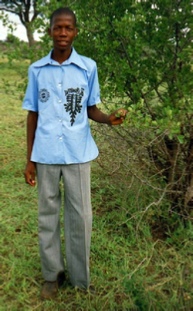© 2018 Dr. M. Sheppard
Christmas and New Year Celebrations
Christmas and New Year are celebrated. This is a relatively modern social occasion. In various parts of the Lands richer families may host Christmas or New Year celebrations. For weeks beforehand the young people from each area of the Lands will practise songs. These songs are the same type as those at weddings, sung and danced to in a semi-
These uniforms are kept secret until the day of the singing. Then on Christmas Day at about 3.00 p.m. the choirs from one area of the Lands go to a family's Lands in the neighbouring area; they are challenging the other area. They may go in lorries or on the back of a tractor. The choirs then take it in turns to sing for about 15-
The singing usually continues until about 8.00 p.m. or even into the night until sunrise. Everyone in the district tries to go to "Christmas" and they will wear their best, or even new, Christmas clothes. This is an occasion when young people may show themselves to their best advantage for the benefit of members of the opposite sex with a view to future relationships, and maybe even marriages.
After the singing has finished the visiting choir returns to its Lands area and the return challenge will take place at its Lands either on Boxing Day or at New Year. This is certainly a very festive occasion and there is a great deal of enjoyment and “self advertisement”to people one does not perhaps see for the rest of the year -
Presumably this is also the type of traditional feast that attracts the Badimo (Ancestors) as described by Setiloane, "Badimo ba rata modumo" (Badimo like noise). Badimo are pleased when kin are gathered for feasting and drinking even if this is not overt. People usually explain it as from the Bible,that Christmas was a time for giving freely, but also it may have a traditional idea such as "pha badimo,, mixed with the idea of the feast. The hosts will be pleasing their Badimo who will hopefully reward them with a successful harvest.
Social Life at the Lands
Daily life at the Lands is much the same as in the village. The homes, however, are much more scattered, as they are usually beside the owner's fields, but they are not isolated from one another. People visit each other frequently. They go together to fetch water (which may be one and a half hours away) and socialise generally. There is the same "social round" of Botsetsi parties, beer drinking (many brew kgadi a spirit) and for younger people, gumba gumba parties, which are not banned at the Lands as they are in Kanye.



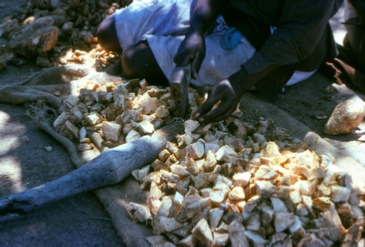

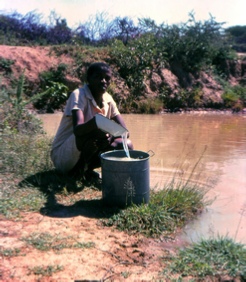
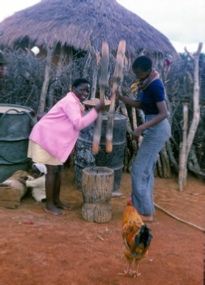
Gumba-Gumba Parties
Gumba-





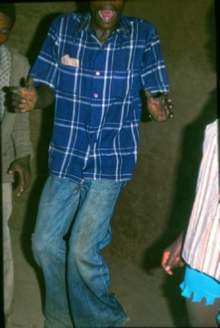

Gumba gumba man with his equipment
Gumba gumba man in venue
Waiting to dance
Dancing
Performing their steps to the gumba gumba record
Hostess sells food, traditional beer & kgadi outside
Stemping the maize for the feast
Large quantities of water fetched for the feast





Miners on leave from South African mines -

